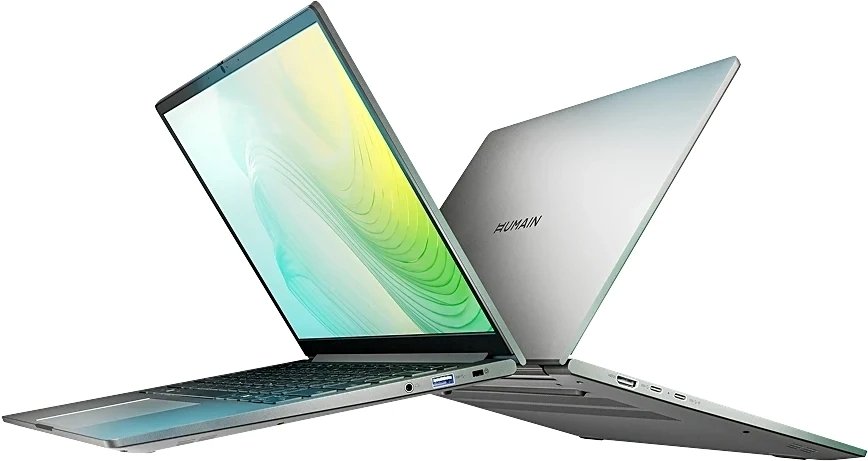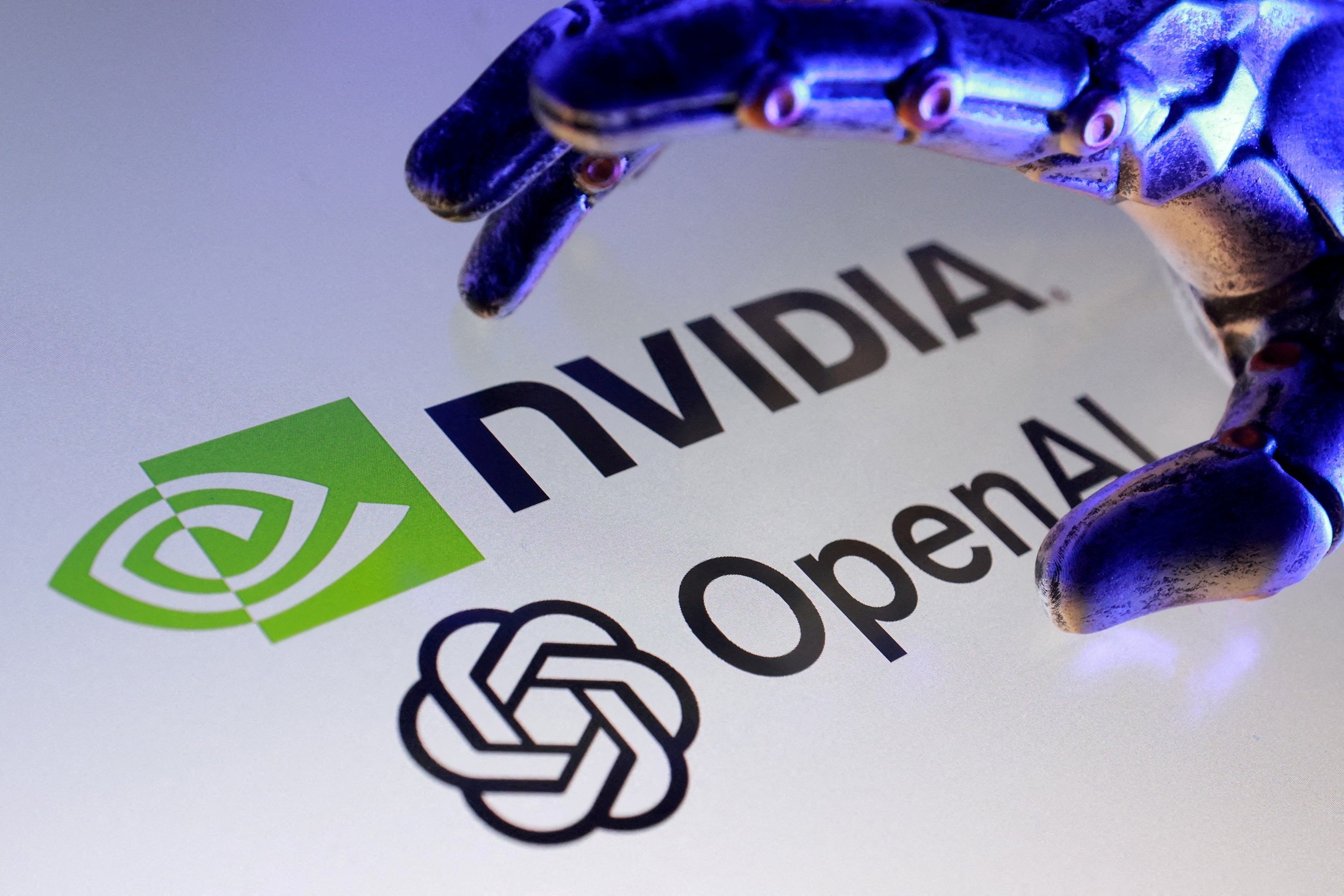Saudi Arabia-based company Humain has unveiled its AI agent-powered computer, aiming to reduce access costs to high-performance workstations and educational devices through subscription and rental models.
The platform marks a shift from app-centric habits to agent-driven workflows, particularly in education and enterprise environments.
Until now, the computing experience has been built around an application-first architecture. Users clicked icons, launched apps and manually managed tasks. Humain’s new approach disrupts this model entirely: tasks are no longer handled by apps, but by intelligent agents acting on the user’s behalf.
Presented at Qualcomm’s Snapdragon Summit 2025, Humain introduces a new ecosystem centered on AI agents. Supported by hardware, software, and on-device LLM integration, this vision signals a major paradigm shift, not just in technology, but in the fundamental nature of human-computer interaction.
New operating system
Humain’s custom-built operating system, Humain One OS, abandons traditional windows and icons in favor of a fully agent-driven interface. Users interact via natural language, allowing the agent to manage entire processes. This model promises faster decision-making, accelerated data analysis, and automation of routine tasks, especially in business environments.
Localization plays a key role in Humain’s vision. The language model named ALLAM runs directly on the device, ensuring data privacy and responsiveness. A hybrid architecture allows cloud support when needed, giving users both security and computational power.
AI-first workstation
Humain’s vision extends beyond software. The company introduced Horizon Pro, a laptop built on the Snapdragon X Elite platform. With 32 GB RAM, 1 TB SSD, and over 18 hours of battery life, the device promises 40% lower energy consumption. A dedicated “Agent Key” provides instant access to AI agents, transforming the device into an AI-first workstation.

This photo shows a Humain laptop. (Courtesy of Humain)
On Day Three of the summit, Humain CEO Tareq Amin emphasized the company’s goal of building an AI agent marketplace. By lowering hardware access costs, Humain aims to lead the transition toward AI-native services.
Hardware strategy for students, institutions
Humain’s strategy isn’t limited to tech enthusiasts. It extends to students and organizations. A pilot program will equip 500 students with Horizon devices, a strategic move seeking to support early adoption.
Subscription and rental models are designed to reduce hardware barriers, offering an innovative pricing strategy for widespread deployment.
New digital revolution?
Humain’s vision, presented at Snapdragon Summit, may represent more than a new computer. It could redefine the entire digital ecosystem paradigm. If security, user experience, and developer support align, the AI agent marketplace could replace traditional apps. Otherwise, the initiative risks being a bold but short-lived experiment.
Humain’s approach signals a new phase in human-computer interaction. But success will require overcoming key challenges. Building a robust ecosystem is critical. Without a sufficient number of high-quality agents, the marketplace may lose appeal. Delegating tasks to agents raises data security concerns, though Humain emphasizes privacy as a top priority.
Changing user habits won’t be easy. The shift from apps to agents demands cultural adaptation. With tech giants like Microsoft, Apple and Google investing in similar visions, Humain’s ability to stand out remains uncertain.
$100 billion mega deal set to reshape global AI market
The recently announced $100 billion strategic partnership between Nvidia and OpenAI, a landmark move that sent shockwaves through the tech world, aims to expand AI infrastructure and redefine the balance of power in the artificial intelligence sector.
The historic agreement focuses on building next-generation data centers and scaling global AI computing capacity.
As AI investments continue to influence nearly every industry, data center expansion has become a critical priority. Nvidia’s massive investment in OpenAI, creator of ChatGPT, will fund the development of 10-gigawatt data centers, boost advanced AI infrastructure, increase production capacity for next-gen AI chips, and accelerate the global deployment of AI computing power.
This deal follows Nvidia’s participation in OpenAI’s $6.6 billion funding round in October 2024. With Microsoft having invested billions in OpenAI since 2019, the new partnership signals intensifying competition and consolidation in the AI space. It reflects a strategic shift among major players to strengthen market dominance, ushering in a new era of opportunity and risk for the tech industry.
Market reaction
Following the announcement, Nvidia and OpenAI stocks saw renewed momentum. According to JPMorgan, AI-related capital expenditures contributed 1.1% to the U.S. gross domestic product (GDP) growth in the first half of 2025, surpassing consumer spending as the primary driver of economic growth.

The Nvidia and OpenAI logos are seen in this illustration taken Sept. 22, 2025. (Reuters Photo)
However, the deal has also sparked concerns. Bain & Co. analysts warn that AI companies could face a cumulative revenue shortfall of $800 billion by 2030. Market observers note that Big Tech firms, including Microsoft and Meta, plan to spend hundreds of billions on AI infrastructure in 2025, fueling rapid growth in capital expenditures.
Some veteran analysts caution that the deal may resemble “vendor financing,” with Nvidia effectively funding OpenAI to purchase its own chips, raising questions about long-term sustainability and strategic alignment.
Global landscape
The global AI market is projected to reach $244.22 billion in 2025, continuing its upward trajectory from $93.5 billion in private investments recorded in 2021. U.S. AI investments currently exceed the combined total of China, the EU, and the U.K. by $25.4 billion, underscoring America’s leadership in the sector.
At the enterprise level, adoption is accelerating. In 2025, key indicators show that AI usage among companies rose from 55% in 2023 to 78% in 2024. Generative AI adoption jumped from 33% to 71% over the same period. Notably, 97% of companies investing in AI report positive returns on investment.
AI-powered startups elevate internet quality in Türkiye
One of Türkiye’s leading telecoms and technology companies, Türk Telekom’s AI-driven Wi-Fi Mercek system resolved 2.5 million connectivity issues in the first half of 2025, while its venture capital arm TT Ventures-backed startups continue to bring innovation to the sector.
With artificial intelligence now at the heart of internet services, Türk Telekom is transforming the user experience across millions of households.
Launched in 2022, Wi-Fi Mercek proactively addresses in-home internet problems using AI-powered diagnostics. The system analyzes wireless connections end-to-end and is deployed across customer service channels, from call centers to digital platforms, delivering smarter, faster support.
2.5 million issues resolved
In the first six months of 2025 alone, Wi-Fi Mercek resolved 2.5 million user issues. In 2024, it was activated 5 million times, significantly boosting operational efficiency and reducing costs. Since its launch, the system has shortened call durations by 54%, improving customer satisfaction while lowering service expenses.
By continuously monitoring connection performance and generating wireless network maps, Wi-Fi Mercek applies proactive solutions tailored to each household. It analyzes signal quality, device distance, and channel type, offering intelligent diagnostics across 17 device brands.
Growing role of local AI startups
Entrepreneurs are playing a key role in Türk Telekom’s AI transformation. Through TT Ventures, the company invests in domestic startups developing AI solutions, strengthening the broader innovation ecosystem.

Zeynep Özden, deputy general manager in charge of marketing and customer experience at Türk Telekom. (Courtesy of Türk Telekom)
Portfolio companies include Segmentify and Mindsite, both recognized for their AI-driven platforms. In 2025, new additions to the Pilot accelerator program, such as Mistikist and T4 People Analytics, are also delivering innovative AI-powered services.
Wi-Fi Mercek, developed in collaboration with QuantWiFi, has earned international acclaim, winning the “Best In-Home Wi-Fi Network” award from the Wireless Broadband Alliance (WBA).
Vision for future
Türk Telekom is prioritizing high-growth areas such as AI-enabled B2B solutions, cybersecurity, and health technologies. This strategy aims to enhance service quality for customers while contributing to Türkiye’s broader tech ecosystem.
Integrating AI into internet services not only strengthens technical infrastructure but also creates new business opportunities for startups, driving sectorwide progress. Türk Telekom’s multifaceted approach positions it as a key player in Türkiye’s digital transformation journey.
In-home connectivity experience improving
Zeynep Özden, deputy general manager in charge of marketing and customer experience at Türk Telekom, described the company as Türkiye’s digital transformation pioneer that is enriching the internet experience by delivering global-standard services powered by next-generation technologies.
“Our AI and automation-integrated support systems offer end-to-end digital solutions that elevate the in-home connectivity experience for fixed internet users. Wi-Fi Mercek enables smart home internet management and boosts operational efficiency, generating significant savings,” Özden said.
“We’ll continue to connect our customers with the latest technologies and enhance our products and services through innovative solutions.”
PortvMind debuts as Türkiye’s first minute-based cloud billing platform
Turkish technology company vMind has officially launched its new cloud platform, “portvMind Public Cloud,” designed and developed by Turkish engineers at Yıldız Teknopark. The platform stands out as Türkiye’s first and only cloud service offering minute-based billing, an innovation poised to reshape how businesses manage short-term workloads.
In the global cloud infrastructure market, Amazon Web Services (AWS) maintains its lead with a 30% share, followed by Microsoft Azure at 20% and Google Cloud at 13%. Together, these three giants control approximately 63% of the total market.
Unlike these providers, which typically bill by the hour or longer intervals, portvMind introduces a granular billing model that allows users to pay only for the exact duration of usage, offering significant cost savings for short-term tasks.
Pay-as-you-use
vMind, one of Türkiye’s leading cloud providers, unveiled portvMind Public Cloud with a clear focus on flexibility and efficiency. CEO Volkan Duman emphasized that the platform can deliver up to 30% cost savings for businesses.

vMind’s CTO Kubilay Kaptanoğlu (L), CEO Volkan Duman (C) and Deputy General Manager Mehmet Ali Küçüktaş. (Courtesy of vMind)
Operating on a “pay-as-you-use” model, the system ensures full data security by storing information within Türkiye and complying with Personal Data Protection Authority (KVKK) and ISO 27001 standards.
Built on a microservices architecture, the platform enables rapid scaling within minutes. Its GPU-ready infrastructure accelerates AI and data analytics projects, while users can deploy to the cloud with a single click and access 24/7 expert support in Turkish, free of charge.
vMind Deputy General Manager Mehmet Ali Küçüktaş noted that Türkiye’s cloud market reached $2.69 billion in 2024 and is projected to grow to $9.7 billion by 2030.
The company is targeting 60%-70% growth this year and has initiated feasibility studies for its first international data center investment in the Europe, Middle East and Africa (EMEA) region.
To encourage adoption, portvMind offers users their first TL 10,000 ($240) worth of usage free.

